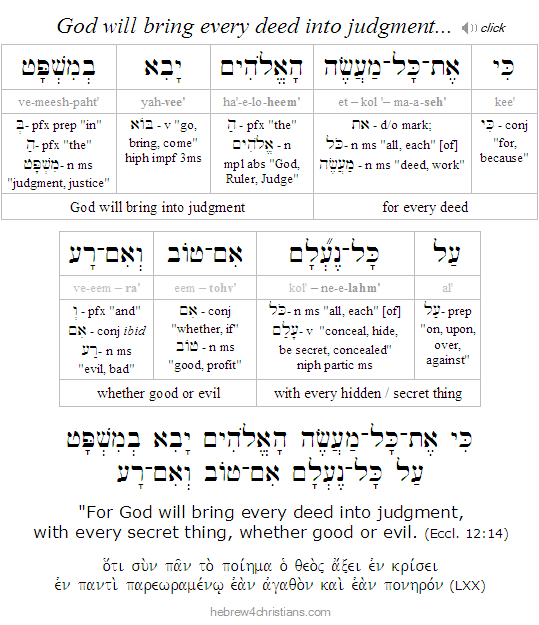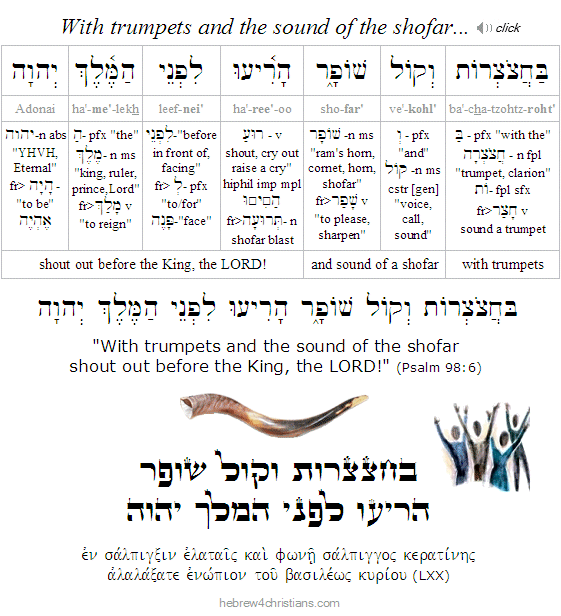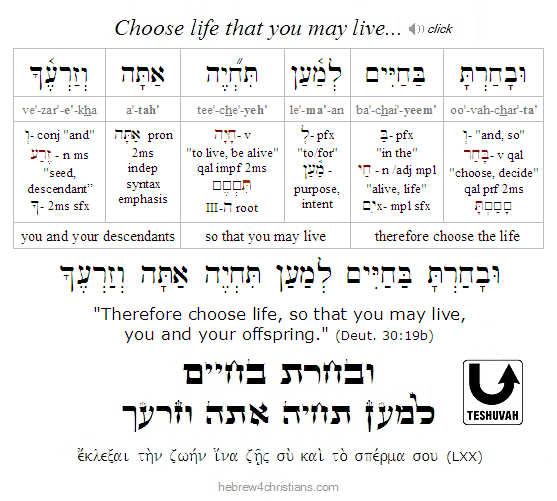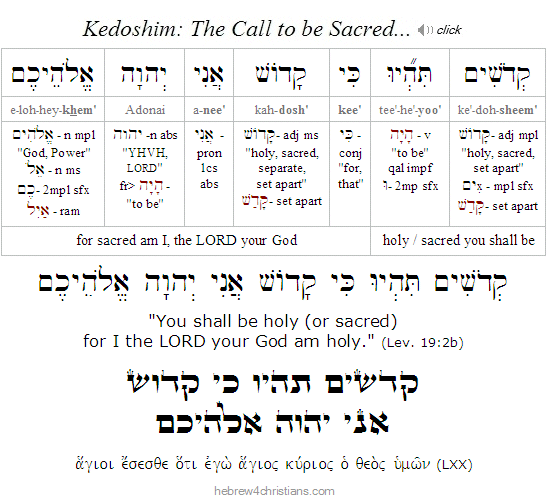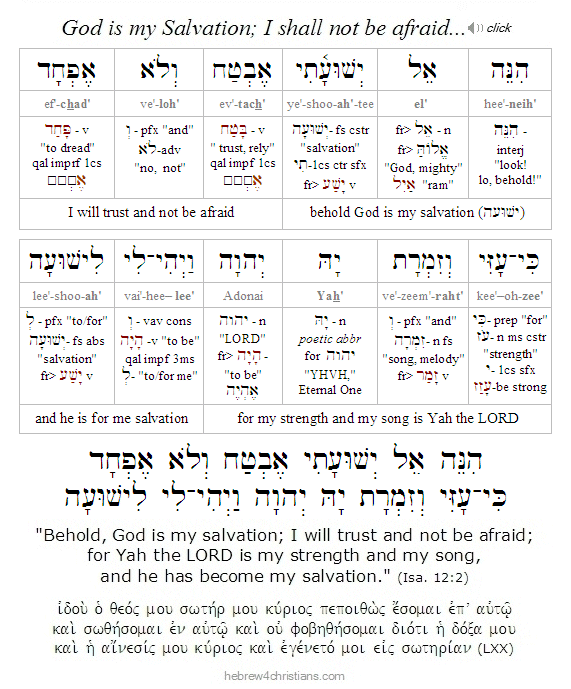|
September 2021 Updates (continued)
Note: If any page content appears to be missing, please refresh the page...
Our Ever-Present Mercy...

09.06.21 (Elul 29, 5781) Since Rosh Hashanah is known as the "Day of Judgment" (i.e., yom ha'din: יום הדין), additional prayers of supplication (selichot) are said before the advent of the holiday. These prayers appeal to God's compassion and often include the recitation of "shelosh esrei middot rachamim" (שלוש עשרה מידות רחמים), or the "thirteen attributes of God's mercy" (Exod. 34:6-7). The thirteen attributes reveal the inner meaning of God's Name YHVH (יהוה) disclosed to Moses after the people had committed the sin of the worshiping the golden calf (עגל זהב) at Sinai. God is not only our Judge and Lawgiver (Elohim), but our Savior and our Healer (Moshia). In his great mercy He restores what we have broken; He overcomes our judgment by means of his abounding love given to us in Yeshua (Psalm 85:10). We therefore appeal to YHVH as the Source of Compassion, the "breath of life" (נִשְׁמַת חַיִּים) that was imparted to Adam on the day he was first created (Gen. 2:7).
The Torah teaches that the Name of the LORD (יהוה) means both ehyeh (אֶהְיֶה) "Presence" and rachum ve'chanun (רַחוּם וְחַנּוּן), "Mercy and Grace" (Exod. 3:14; 34:6-7). Yeshua said, "I go to prepare a place for you," which means that his presence and love are waiting for you in whatever lies ahead (Rom. 8:35-39). We live and move and have our being in God's love. To worry is "practicing the absence" of God instead of practicing His Presence... Trust the word of the Holy Spirit: "For I know the plans I have for you, declares the LORD, plans for healing peace and not for evil, to give you a future and a hope (Jer. 29:11).
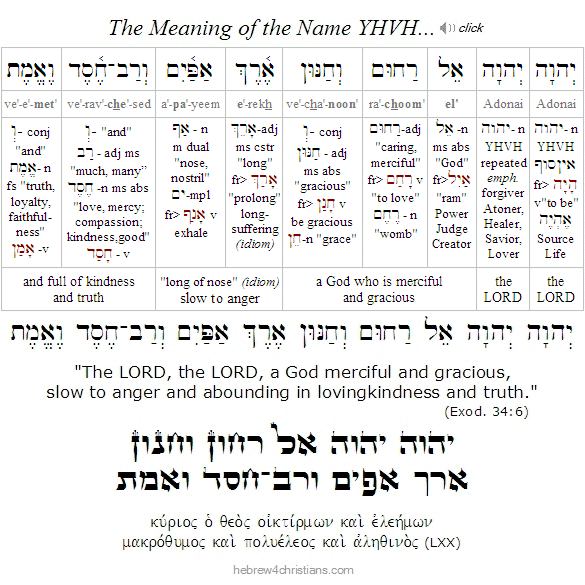 |
Ten Days to Yom Kippur...
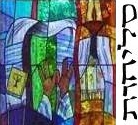
09.06.21 (Elul 29, 5781) According to tradition, on Rosh Hashanah the destiny of the righteous, or the tzaddikim, are written in the Book of Life (סֵפֶר הַחַיִּים), and the destiny of the wicked, or the resha'im, are written in the Book of Death (סֶפֶר הַמָּוֵת). However, most people will not be inscribed in either book, but have ten days -- from Rosh Hashanah until Yom Kippur -- to turn to God before "sealing" their fate. On Yom Kippur, then, everyone's name will be sealed in one or the other of the two books. The ten days are therefore called Aseret Yemei Teshuvah (עֲשֶׂרֶת יְמֵי תְּשׁוּבָה) - the "Ten Days of Repentance" - so called because it is thought that repentance at this time affects the divine decree for the coming year (for the same reason these days are also called Yamim Nora'im (ימים נוראים), or "Days of Awe").
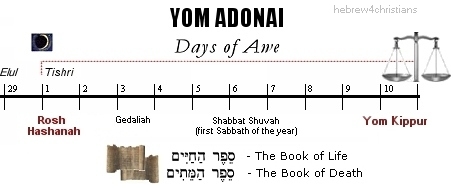 |
As Messianic believers, we affirm that Judgment Day has come and eternal justice was served through the sacrificial offering of Yeshua for our sins (2 Cor. 5:21). Yeshua is the complete fulfillment of the Akedah of Isaac. Our names are written in the Lamb's Book of Life, or Sefer HaChayim (Rev. 13:8). We do not believe that we are made acceptable in God's sight by means of "our own works of righteousness" (Titus 3:5-6), though of course that does not excuse us from being without good works (as "fruit" of the Holy Spirit in our lives). Indeed, professing Christians will stand before the Throne of Judgment to account for their lives (2 Cor. 5:10). "Every man's work shall be made manifest: for the day shall declare it, because it shall be revealed by fire; and the fire shall try every man's work of what sort it is" (1 Cor. 3:13). Life is an examination, a test, and every moment is irrepeatable. Every "careless" word we utter will be echoed on the Day of Judgment (see Matt. 12:36-37). Our future day of judgment is being decided today...
Shavuah Tov Podcast:
Parashat Vayeilech...
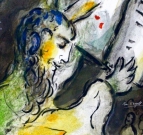
09.05.21 (Elul 28, 5781) In the "Shavuah Tov" audio broadcast for parashat Vayeilech I take some to discuss both the Jewish High Holidays -- and how they relate to us as followers of Yeshua the Messiah -- as well as themes from the weekly Torah portion. I hope you will find it helpful. L'Shanah Tovah u'Metukah b'Yeshua Meshicheinu, chaverim! - "to a good and sweet year in our Messiah Yeshua, friends." I hope you will find it helpful.
Parashat Vayeilech (פרשת וילך)
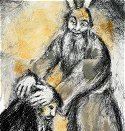
09.05.21 (Elul 28, 5781) In last week's Torah reading (i.e., parashat Nitzavim), Moses formally gathered the people of Israel together to ratify their covenant with the LORD. Moses then pled with the people bacharta ba'chayim - to "choose life" by pursuing the path of obedience to the Torah and its commandments. If the Israelites would do so, they would be blessed and prosper as God's chosen nation; but if not, they would be subjected to hard exile, persecution, and the threat of utter destruction.
In this week's portion (i.e., parashat Vayeilech), Moses announced his impending death and transferred the leadership of the Jewish nation to Joshua (יְהוֹשֻׁעַ), a type of Messiah who would bring Israel into the promised land. Moses continued his speech and foresaw that despite his appeals, the people would turn away from the covenant, which would cause God's face to turn away: "And hiding I will hide My face (הַסְתֵּר אַסְתִּיר פָּנַי) on that day, because of all the evil they have committed" (Deut. 31:18). The sages note this verse is grammatically unusual because of the double use of the word "hide." If you do not know that God is "hiding," you will not seek for Him; but if you sense within your heart that God is hiding, you are invited to return to Him, as King David said, "When you said to my heart, 'Seek my face;' my heart said to You, 'Your face, LORD, will I seek' (Psalm 27:8).
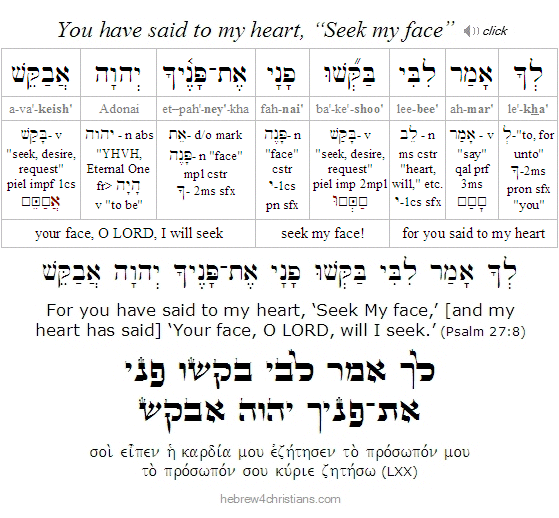 |
In this connection we note that Yeshua often spoke in the form of a parable (παραβολή) to "code" his meaning, to make it accessible only to those who were genuinely willing to make comparisons, to reason analogically, and so on (Isa. 1:18; 1 Cor. 2:13). He used "indirection," allusion, allegory, and "figures of speech" (παροιμία, lit. "[speech] beyond the usual way"), in order to provoke people to explore and ask the hard questions about life... "Truly, you are a God who hides himself, O God of Israel, the Savior" (Isa. 45:15).
"For God so loved the world" that He disguised himself as a bondservant to die in shame upon a cross; "God so loved the world" that he became entirely unesteemed -- "despised and rejected of men, a man of sorrows, acquainted with grief" (Isa. 53:3). Yet even Moses foresaw the stupor of the people in relation to the truth of God (Deut. 29:4). Regarding the "hiding of face," in His sovereign judgment God decreed: "They know not, nor do they discern, for he has smeared their eyes so that they cannot see, and their hearts, so that they cannot understand" (Isa. 44:18). God "gave them over to their stubborn hearts, to follow their own devices" (Psalm 81:12; Rom. 1:24); they went "backward and not forward" (Jer. 7:24). This was not a blindness induced by the "god of this world" as much as it was a darkness induced by the flesh and its apathy toward God. The mind became dull and sleepy because it ceased to believe in the miracle - and to realize that God's truth is always something extraordinary, spectacular, and wonderful...
Shabbat Shuvah (שבת שובה)
The Sabbath between Rosh Hashanah and Yom Kippur is called Shabbat Shuvah - "The Sabbath of Return." It is called "shuvah" because the Haftarah (Hosea 14:2) begins, Shuvah Yisrael ad Adonai Elohekha (שׁוּבָה יִשְׂרָאֵל עַד יְהוָה אֱלהֶיךָ): "Return, O Israel, unto the LORD your God!" Since this Sabbath occurs before Yom Kippur, it is customary to listen to a sermon from an honored Torah sage calling for teshuvah (repentance) at this time. "Seek the LORD while he may be found; call upon him while he is near. Let the wicked forsake his way, and the unrighteous man his thoughts; let him return to the LORD, that he may have compassion on him, and to our God, for he will abundantly pardon" (Isa. 55:6-7).
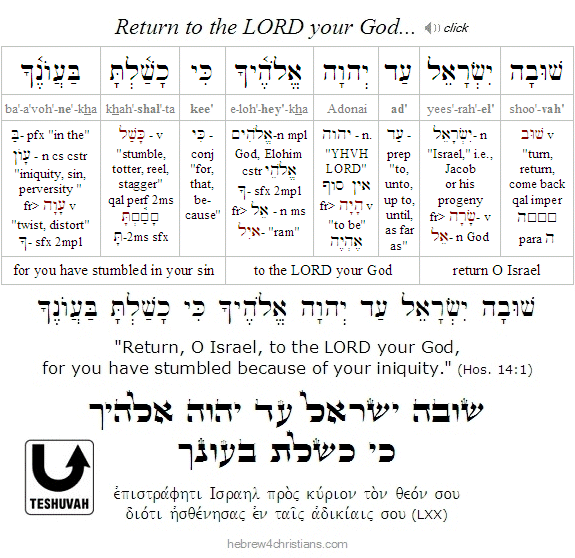 |
Searching the Heart...

09.03.21 (Elul 26, 5781) We are encouraged to practice self-examination (i.e., cheshbon ha'nefesh: חֶשְׁבּוֹן הַנֶּפֶשׁ) before celebrating the "Lord's Table" (i.e., the commemoration of Yeshua's last Passover Seder that prefigured His sacrifice as the Lamb of God who takes away the sins of the world). "Let a person examine himself first (δοκιμάζω - test for authenticity), and then he may eat of the bread and drink from the cup. For anyone who eats and drinks without discerning the body eats and drinks condemnation (κρίμα) on himself" (1 Cor. 11:28-29). Now while it is assuredly true that we should search ourselves in remembrance of our Savior's sacrifice, the practice of self-examination and confession should be part of our everyday lives as followers of the Messiah. The unexamined life -- especially as a Christian -- is not worth living, and the practice of suppressing the truth about our sinful condition can lead to self-deception and even death itself (1 Cor. 11:30). "But if we would judge ourselves, we should not be judged by the Lord" (1 Cor. 11:31). "If we say we have no sin, we deceive ourselves, and the truth is not in us; if we confess our sins, he is faithful and just to forgive us our sins and to cleanse us from all unrighteousness" (1 John 1:7-8). "Therefore, confess (ἐξομολογέω, lit. 'confess out') your sins to one another and pray for one another, that you may be healed" (James 5:16).
Life is a serious business, friends, and it is also a test. It is "God who tests our hearts" (1 Thess. 2:4). It is our Lord Yeshua who said, "I am he who searches hearts and minds, and I will repay each of you according to your deeds" (Rev. 2:23). We have one opportunity to live for Yeshua in this life, and the fact that we will each face a day of judgment before the LORD should sober us to sanctity. God holds us responsible for what we think and believe (Acts 17:30-31), and this implies that we have a moral and spiritual duty to think clearly and not abuse our minds (Phil. 4:8; Rom. 12:2). It is the fear of the LORD (יִרְאַת יהוה) that is the beginning of wisdom and knowledge (Psalm 111:10; Prov. 1:7; 9:10). "By the fear of the Lord men depart from evil" (Prov. 16:16). The fear of the LORD is hatred of evil, and therefore, those who love the LORD are called to hate evil (Prov. 8:13; Psalm 97:10). Sin always cheats us of the good. "Blessed is the man that endures testing: for when he has been approved (δόκιμος), he shall receive the crown of life (τὸν στέφανον τῆς ζωῆς) that the Lord has promised to those who love him" (James 1:12).
So are you living in conscious awareness that life is a test and that you will one day stand before Yeshua to give account for every detail of your life? Are you mindful of eternity and of the inevitability of your own personal judgement day? If this causes you anxiety, what do you need to do differently in your life so that you may have confidence for that day? "Therefore we labor... to be well pleasing to Him" (2 Cor. 5:9). We must strive to "lay aside every weight, and the sin which doth so easily beset us" in order to be unhindered in our walk with God (Heb. 12:1). God promises to help us as we endeavor to do his will (1 John 5:14).
There is great glory coming your way, chaverim! May the LORD God help you "to walk in a manner worthy of God, who calls you into his own kingdom and glory" (1 Thess. 2:12). May you be "fully pleasing to him, bearing fruit in every good work and increasing in the knowledge of God. May you be strengthened with all power, according to his glorious might, for all endurance and patience with joy, giving thanks to the Father, who has qualified you to share in the inheritance of the saints in light" (Col. 1:10-12). Shabbat Shalom!
Hebrew Lesson:
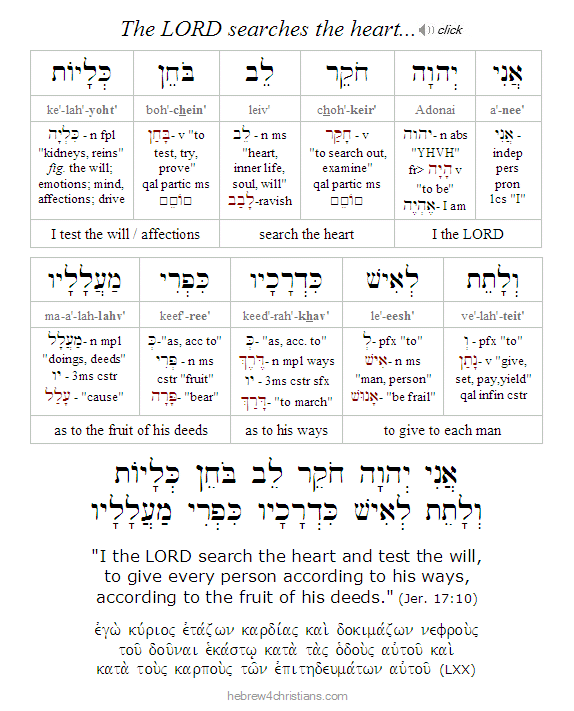 |
Testing of the Heart...
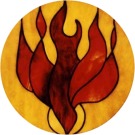
09.03.21 (Elul 26, 5781) The central theme of Rosh Hashanah is to recall that God is our Creator, our King, and therefore our righteous Judge. Since our souls were created by God, we have the duty to serve Him as our King and live before Him as our Judge. Since the LORD is the God of Truth (יהוה אֵל אֱמֶת) who cannot attest to a lie, every person who has ever lived will necessarily face judgment one day (Heb. 9:27).
Indeed, the Scriptures reveal that there are heavenly "books" that contain detailed records of all that we did (or did not do) during our time here on earth: "And I saw the dead, great and small, standing before the throne, and books were opened. Then another book was opened, which is the Book of Life (סֵפֶר הַחַיִּים). And the dead were judged by what was written in the books, according to what they had done" (Rev. 20:12).
There are actually several different judgments described in the Scriptures. For instance, there is: 1) the judgment of believers, sometimes called the "judgment seat of Messiah" (2 Cor. 5:10; Rom. 14:10); 2) the "sheep and goats" judgment at the end of the Great Tribulation period (Matt. 25:31-36), and 3) the "Great White Throne" judgment at the end of the Millennial Kingdom period (Rev. 20:11-15). Common to each of these judgments is the inevitability that all men, both living and dead, saved and unsaved, will ultimately give an account of their lives before Yeshua as the true Judge (John 5:22,27; Rom. 14:11-12; Phil. 2:10-11, cp. Isa. 45:22-23).
Some Christians tend to think that they will not face judgment for their lives here on earth because they are "saved." And while it is gloriously true that Christians will not face condemnation with the world, nonetheless each follower of Yeshua will be required to give account for how he "walked out" his salvation in this world. "For we must all appear before the judgment seat of Messiah (τοῦ βήματος τοῦ Χριστου) so that each one may receive what is due for what he has done in the body, whether good or worthless" (2 Cor. 5:10). It's important to understand that this future judgment is not for the sins of a believer, since the sacrificial death of Yeshua paid the full price for all our sins at the cross (Col. 2:13-14). There is no condemnation to those who belong to Yeshua (Rom. 4:7-8; 8:1; John 5:24). We are justified by faith and now have peace with God because of what Yeshua has done for us (Rom. 5:1). Instead of a judgment regarding our identity (and security) as a child of God, the future judgment of Messiah concerns "giving what is due," or rewarding acts of service done during our allotted time here on earth (i.e., in our mortal state).
To illustrate what this judgment will be like, Paul used the analogy of an elevated platform (or "bema," βῆμα) that held a judge's seat in an ancient Greek sports arena. Athletes would stand before the bema to receive awards based on how well they ran the race. All those who finished the race would pass before the bema, but only those who ran well would receive an award (often an honorary crown or victory wreath). In other words, the believer's judgment will resemble an "awards ceremony" where those who ran the race well would be honored (1 Cor. 9:24-26). The Bema of Messiah is a place where rewards will be given - or lost - depending on how well we have walked out our faith in this life... While some Christians "shall suffer loss" (of rewards), nevertheless, each person attending this judgment "shall be saved" (1 Cor. 3:14-15). Again, this is a believer's judgment before the Messiah based on his or her personal surrender to His will...
Yeshua taught that "everyone who hears these words of mine and does them will be like a wise man who built his house on the rock" (Matt. 7:24). Though the house will be tested by storm and by flood, it will not fall because it had been founded upon the rock... Likewise the Paul warned us to construct our lives on the solid foundation of the sacrificial work of Yeshua our Messiah (1 Cor. 3:11-15). "Let each one take care how he builds upon it." Choose your building materials wisely. "Wood, hay, and stubble" represent all the "worthless" efforts we make, including those based on self-effort or "religion." Gold, silver, and precious stones represent the work of the Holy Spirit in our hearts. But every believer's works will be tested: "Each one's work (ἔργον) will become manifest, for the Day will disclose it, because it will be revealed by fire, and the fire will test (δοκιμάσει) what sort of work each one has done" (1 Cor. 3:13). Notice that Paul likened the believer's judgment to a fire that tests the quality of materials used to build a house. Good deeds will survive through the fire, whereas worthless (φαῦλος) deeds will be burned up. Again, it's important to understand that the "testing fire" mentioned here is not one of eternal judgment, but rather pictures the burning away of the "worthless matters" (φαῦλος) of this life to reveal what is eternally abiding...
But understand that this "testing fire" is not something we will experience in the far off future. It is not some sort of "purgatory" experience. Today you are in the midst of testing, writing the "Book of your Life," and that includes your refinement for receiving future rewards... The Apostle Peter speaks about the present sorrow we may face through "various trials, so that the tested genuineness of your faith -- more precious than gold that perishes though it is tested by fire -- may be found to result in praise and glory and honor at the revelation of Yeshua the Messiah" (1 Pet. 1:6-7). The suffering we sometimes experience in this life is therefore a refining fire, intended to strengthen our faith and bring glory to the Lord. "For it is time for judgment to begin at the household of God; and if it begins with us, what will be the outcome for those who do not obey the gospel of God?" (1 Pet. 4:17). God tests our hearts so that we will be able to stand before Him without shame on the day of our judgment. "Just as we have borne the image of the man of dust, we shall also bear the image of the man of heaven" (1 Cor. 15:49).
Every one of us will give account of our lives. In Matthew 25:14-30, Yeshua used a parable to indicate what this reckoning will be like. After distributing "talents" to three different servants, a certain "employer" left on a long journey. When he finally returned, he wanted his servants to account for the use of their talents, so he called them to "settle accounts with them" (Matt. 25:19). This phrase "settle accounts" (συναίρει λόγον) means to compare things, to look closely at the records to determine profit or loss to a business, and is therefore similar to the idea of a financial audit. In the parable, the employer considered the state of his business and then called each of his servants in to stand before him for a summary review. Likewise, each of us will be called to stand before the Lord to give account for his or her life. Those who used their talent for the promotion of the Kingdom will be rewarded, but those who wasted their opportunities will not (1 Cor. 3:12-15).
Ultimately each of us will have to confess the truth (ὁμολογέω - "say the same thing") about who we are and what we've become. We can begin that process now through confession of our sins: "For if we would judge ourselves, we should not be judged" (1 Cor. 11:31). If we refuse to do this, we may be "chastened" (παιδευόμεθα) so that we may not be condemned along with the world (1 Cor. 11:32; Heb. 12:5). The image of "testing fire" is a symbol of the examination of our lives by the LORD Himself. "For we shall all stand before the judgment seat of God (τῷ βήματι τοῦ θεοῦ); for it is written, 'As I live, says the Lord, every knee shall bow to me, and every tongue shall confess to God.' So each of us shall give account of himself to God" (Rom. 14:10-12). Ultimately, this confession of the truth is not optional for anyone. For the follower of the Messiah, such confession produces salvation: "for with the mouth one confesses and is saved" (Rom. 10:10). But for those who refuse to undergo self-examination and therefore refuse to confess the truth about their need for salvation, there is the Lord's own reciprocal confession: "Then I will confess to them: 'I never knew you; depart from me, you workers of lawlessness' (Matt. 7:23).
That is why we are commanded: "Examine (πειράζω) yourselves to see whether you are in the faith. Test yourselves (ἑαυτοὺς δοκιμάζετε). Or do you not realize that Yeshua the Messiah is in you, unless indeed you are proved to be rejected (ἀδόκιμος)" (2 Cor. 13:5). This, of course, is the critical test, since without the life of Messiah living within us, we will have no "works of righteousness" that will stand the test. After all, good works are an outflow of the Holy Spirit, and never the result of human effort. However, it is up to us whether we will "be filled with the Spirit" and yield to God's guidance in our lives (Eph. 5:18). Note that the verb "be filled" (πληροῦσθε) is: 1) present tense (i.e., denoting continuous action), 2) imperative ("you must...), and 3) passive voice (i.e., "you must let yourself be filled"). In other words, you must continually let yourself be filled by the Holy Spirit. This is the test of faith, to let Messiah reign within your heart... "Work out your own salvation with fear and trembling, for it is God who works in you..." (Phil. 2:12-13).
Hebrew Lesson:
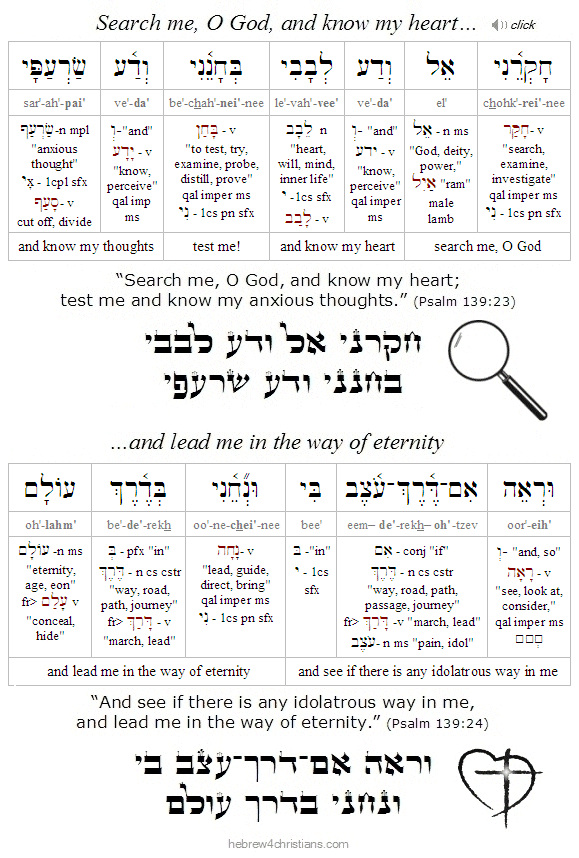 |
Wounded Healers...

09.03.21 (Elul 26, 5781) No one escapes suffering in this life, and therefore it is senseless to pretend to hide or deny our troubles. We are likened to fragile and easily broken vessels that hold the truth of salvation; we are mere dust held together by the sustaining power and glory of God. Our frailty is intended to reveal God's sufficiency and strength: "But we have this treasure in jars of clay, to show that the surpassing power belongs to God and not to us" (2 Cor. 4:7). In light of this, the only meaningful question is how our woundedness and vulnerability may be used to encourage others (2 Cor. 1:4). The "surpassing power belongs to God and not to us" means that God keeps us continually dependent upon himself; we have nothing at our own command; God alone is our strength.
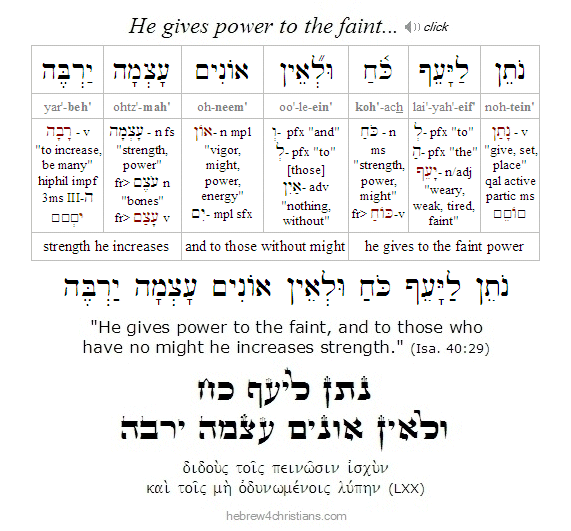 |
I wonder how often, when I pray from my heart, yearning in my sorrowful unknowing, reaching for utterance in my emptiness, that God sees past my momentary struggle to behold who I really am - despite myself - by means of his grace. What are words but disguised groans, sighs, and lament? And when there's nothing left to say -- silence -- being in the presence of God, quietly surrendered to everything, to my own inner contradictions, to my hopes and to my fears, to my delights and my disappointments, when all is abandoned - I forget myself in peace because everything I am or ever will be is laid out, nothing hidden, before Him. I am no longer fighting, struggling, angling, reasoning, or desiring anything other than just to be there, just as I am, a broken soul in need of my heavenly Father's love... and it is a beautiful place of shalom.
Rosh Hashanah at Home...

09.03.21 (Elul 26, 5781) Though there are technically four "New Year Days" on the Jewish calendar, two are most widely recognized: the New Year of spring (i.e., Nisan 1 and the time of Passover) and the New Year of fall (i.e., Tishri 1, the time of the High Holidays). The New Year celebration of the fall harvest begins before sundown, just before the start of Tishri 1 (this year, Monday, September 6th). In accordance with the Scriptures, we gather together make a joyful noise before the Lord and to honor Him as our Creator and King. The main event consists of a special simchah (festive) service, somewhat similar to a Friday evening Shabbat meal, with the addition of some special foods, reciting some holiday blessings, praying for a good new year, and listening to the shofar blast. The celebration begins with the lighting of candles (symbolizing the transition from profane to sacred time) and the special blessing thanking God for enabling us to reach this season...

The Rosh Hashanah home celebration begins with the lighting of candles (symbolizing the transition from profane to sacred time) and the special blessing thanking God for enabling us to reach this season. We then do "kiddush" for the holiday. Traditionally we eat round challah (during the hamotzi blessing) both to remind us that life is a circle (a cycle of seasons) and to symbolize the Kingship (Crown) of God...
After this we pray as a group and bless the children. Appetizers called "simanim" (סִימָנִים) are then served. These are symbolic foods used as an occasion to offer first blessings for the New Year. For example, we eat leeks, called karsi in Aramaic, as a play on the Hebrew word karat - to cut down - i.e., "may our enemies be cut down." We also eat pomegranates to remind us of the sweetness of the Torah and to remember God's commandments, and so on. Doing this adds fun to the occasion and helps us sanctify the main meal. For dessert it is customary to taste apples dipped in honey (i.e., tapuach udvash: תפוח ודבש) as a token of our wish for a sweet year. After dinner, we are ready for the climatic event of the evening: the sounding of the shofar in praise of our great King!
Hebrew Lesson:
To make it a bit easier for you to participate, I have created an "Easy Rosh Hashanah Seder Guide" that includes step-by-step procedures for holding your own Rosh Hashanah home celebration. The Seder Guide includes English transliterations along with the basic Hebrew blessings, so now everyone can join in! Celebrating Rosh Hashanah is both joyous and spiritually significant, especially from a prophetic perspective. I hope you find this helpful, chaverim. L'Shanah tovah u'metuka b'Yeshua - "to a good and sweet year in Yeshua!"
Note: Regarding observing the holidays, always remember that what most important is not rituals based on tradition, nor even getting the date and time exactly right, but understanding the significance of the holiday and learning more about how it reveals the glory of Yeshua. It does the soul no good -- and the LORD God surely isn't impressed -- if you're 100% kosher and keep all the holidays down to the exact minute but have a hard heart that is proud or that doesn't understand God's desire to save a lost and dying world.
Return of the Captives...

09.03.21 (Elul 26, 5781) In our Torah for this week (i.e., Nitzavim), we read: "The LORD your God will return as you return, and will have mercy upon you, turning to gather you back..." (Deut 30:3). This has both a present and prophetic application. First, in the present hour, if you turn to God, he will show you compassion, and he will "gather back" all those distant and fragmented parts of yourself into shalom and wholeness. He will restore your lost days; he will bring you out of exile and give you comfort in Yeshua. He makes all things new. "Draw near, therefore to God, and he will draw near to you" (James 4:8). Second, the LORD will return to earth as the Jewish people return from their captivity, and he will restore Zion during the time of the final redemption. The LORD will turn captivity into mercy; he will turn in his compassion to his people. As it is written: "I will be found by you, declares the LORD... and I will bring you back..." (Jer. 29:14).
 |
The language of the Torah here is emphatic: "even if your exile is at the farthest edge of heaven (בִּקְצֵה הַשָּׁמָיִם), from there the LORD your God will gather you..." (Deut. 30:4). Note that this prophecy is written in the singular and therefore pertains to each individual exile. God will "gather you," that is, he bring you back to make you whole. Even if your exile (singular) is to the uttermost, the LORD will take you and deliver you, as it is written, "He is able to save to the uttermost (σῴζειν εἰς τὸ παντελὲς) those who draw near to God through him, since he always lives to make intercession for them" (Heb. 7:25). We are close to the end now, waiting for our Lord to come take us home, in whatever way he chooses.
If you are a child of God you are destined for unimaginable beauty and glory... "All things work together for your ultimate good"; there is a future and hope reserved for you. Nothing can thwart God's overmastering providence and purposes for your blessing in Yeshua our Lord. Amen, one day soon you will forget all your miseries and be engulfed in great joy!
Hebrew Lesson:
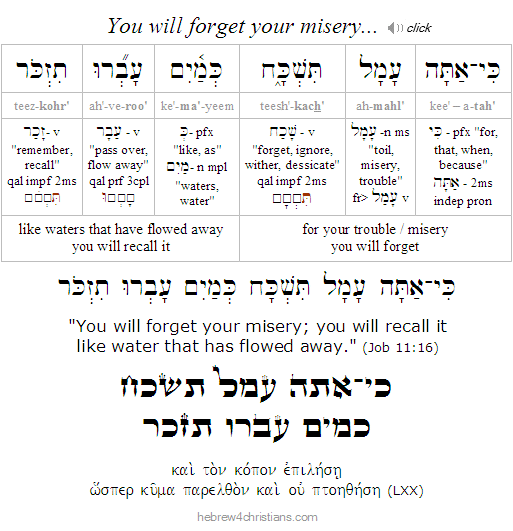 |
Matters of Life and Death...
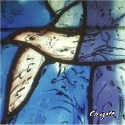
09.02.21 (Elul 25, 5781) Some people wonder whether there is life after death but they often ignore the more pressing question of whether there is life before death... Yeshua said, "I am come so that people may have life, and that may have it abundantly" (John 10:10). So are you really alive? Are you experiencing the abundant life of the God within you?
In its truest sense, teshuvah (i.e., repentance) isn't so much about turning away from sin as it is turning to the light, embracing reality, and being entirely honest with ourselves. The Greek word "metanoia" (μετάνοια) conveys a similar idea - going "beyond" (i.e., meta: μετά) our everyday thinking (i.e., nous: νοῦς) to apprehend the realm of the sacred, the superlative wonder of existence, and the blessing of life. Metanoia means getting outside of your head, losing your dead habits, and forsaking your unthinking assumptions to experience "all things new." Wisdom is grounded in humility, which is rooted in the awareness of our own biases and ignorance. When we become conscious of just how fleeting and sacred our lives are, our personal relationships will be transformed and we will begin to sense the sacredness of our time together. "Any time you are with anyone or think of anyone you must say to yourself: I am dying and this person too is dying, attempting the while to experience the truth of the words you are saying. If every one of you agrees to practice this, bitterness will die out, harmony will arise" (de Mello). Amen. The sages say, "Repent one day before you die." But who knows the day of one's death in advance? Perhaps your name will be called today, ending your lease on life in this world. So are you ready? Are you prepared to appear before your Creator to account for your life (Rev. 22:12)?
"Find God or die..." (Deut. 30:19). We cannot choose not to choose; we cannot "opt out" of our sacred responsibility to live before God. Every human being faces the holy dilemma, and there is no way to avoid the "either/or" by attempting to somehow unite heaven and hell. Spiritually this means that we must learn to "choose to choose," since denying the power of our choice (e.g., by rationalizing, blaming others, playing the victim) means forsaking our identity as a soul made in the image of God, and this results in being inwardly "disfigured" and fragmented...
The Spirit of God cries out, bacharta ba'chayim! - "Choose life - that you may live!" This commandment [i.e., choosing life] is not too hard for you; nor is it beyond your reach: it is very near you - as close as your breath and as near as your heart (Deut. 30:11-14). You must "choose life," which which implies that is your personal responsibility to believe in the Reality of God, to trust in his providential care for your life, to affirm that "all is well and all manner of thing shall be well" for you, and to understand that your present struggle is designed by heaven to help you grow in grace and the knowledge of the truth (1 Pet. 3:16). All things work for our good (Rom. 8:28) and therefore "choose life" both in happier moments when all goes well, but also (and especially) in the midst of your afflictions, in the panting of your heart for deliverance, in the loneliness of your heartache, and in the lament of your soul over the pain of your sins. Faith courageously refuses the messages of fear, silences angry voices of this world, and resists the idols of the age that offer spurious respite from the struggle at hand... "If we live by the Spirit let us also walk in the Spirit" (Gal. 5:25). When you ask God to help you choose life, what are you doing if you are not asking God to grant you the ability to believe in the miracle of love? Choosing life involves the surrender of your heart and your will to the promise of God, choosing to receive the blessing of the Divine Presence – his word, his promise, and his healing – and resolutely deciding to live in light of that hope today. Dear friend, may you choose life this very hour...
Reason for Teshuvah...
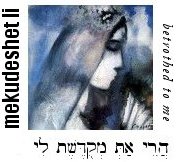
09.02.21 (Elul 25, 5781) "Be holy as I am holy" (Lev. 19:2). This doesn't mean wrapping yourself up in some protective cloak of religious rituals as much as it means accepting your own atonement: reconciling who you are with your past, finding healing and real love, and walking in genuine hope... Holiness isn't as much "separation" from the profane as it is "consecration" to the sacred, and in that sense it is teshuvah, a turning of the heart back to reality.... Negatively put, "being holy" is turning away from fear, despair, and anger; positively put, it is embracing the worth and value of life, learning to see the sacred, honoring the Divine Presence, and walking in the radiance of God's love. Now that's the reason for teshuvah! Hashivenu Adonai....
The Torah of your Life...

09.02.21 (Elul 25, 5781) The underlying assumption at work behind the call to do teshuvah is that your life matters and your actions carry profound significance - both in this world and in the world to come. Sin is so dangerous because it damages our very essence, and if unremedied, such damage will be irreversible. Therefore today is the day to seek healing, for your days are numbered in this world and every day you live ratifies the end of your life. The sages say "mitzvah goreret mitzvah" (מצווה גוֹרֶרֶת מְצוּוֶה) - "the reward for a mitzvah (i.e., blessing) is another mitzvah" (Avot 4:2), though of course the logical corollary is also true, "the reward for a sin is another sin."
"It is a serious thing to live in a society of possible gods and goddesses, to remember that the dullest most uninteresting person you can talk to may one day be a creature which, if you saw it now, you would be strongly tempted to worship, or else a horror and a corruption such as you now meet, if at all, only in a nightmare. All day long we are, in some degree [going] to one or the other of these destinations. It is in the light of these overwhelming possibilities, it is with the awe and the circumspection proper to them, that we should conduct all of our dealings..." (C.S. Lewis: Weight of Glory)
In the Talmud (Makkot 2:6) we read, "They asked of Wisdom: 'What is the sinner's punishment?' It replied, "Evil pursues the sinners" (Prov. 13:21). They asked Prophecy: 'What is the sinner's punishment?' It replied, "The soul that sins shall die" (Ezek. 18:4). Then they asked the Holy One, blessed be He, 'What is the sinner's punishment?' He replied, "He should turn to me and be forgiven. This is the meaning of the verse, "Therefore he guides sinners in the way" (Psalm 25:8) - God guides sinners to do teshuvah in order for them to find life.
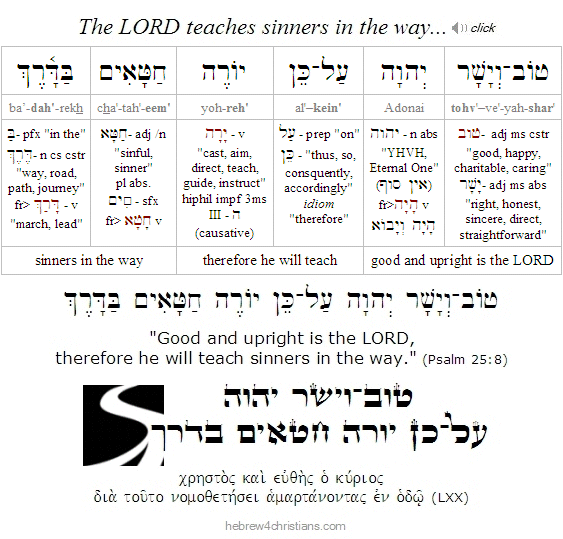 |
What is God like - what is His heart - is the first question, and how we answer that will determine how we deal with all the other questions that come up in theology... What do you feel inside when you stare up at the ceiling before you go to bed? In light of the ambiguity and heartaches of life we might wonder if God is there for us. Does God care? Is He angry at me? Does He really love me? This is the raw place of faith, where we live in the midst of our questions. The Name YHVH (יהוה) means "He is present," even when we are unconscious of His Presence in the hour of our greatest need.
Witness of the Spirit...
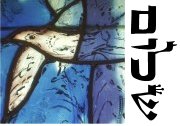
09.01.21 (Elul 24, 5781) "Because you are his children, God has sent the Spirit of his Son into your hearts, crying, "Abba! Father!" (Gal. 4:6). Note here the Spirit does not cry out using "esoteric" or abstruse names for God, nor does the Spirit refer to one of God's many titles based on the divine attributes, but instead uses a term of intimacy and profound trust. After all, the word "abba" (אַבָּא) is not so much a name for God as it is a claim about who you are -- it is a confession that you belong to the Lord as his beloved child... It has been noted that throughout his ministry Yeshua referred to the LORD simply as his "Father" though he used the intensive address "Abba, Father" (Ἀββᾶ, ὁ πατήρ) just before his arrest and crucifixion, that is, during his intercession at Gethsamane (גַּת שְׁמָנִים), near the olive oil press on the Mount of Olives where the anointing oil for the Temple (שֶׁמֶן הַמִּשְׁחָה) was made, and therefore he called upon "Abba, Father" while in deep suffering and tribulation of heart (Mark 14:36). "Take this cup away from me. Yet not what I will, but what you will..." The mixed dialect of Hebrew and Greek here (i.e., Ἀββᾶ, ὁ πατήρ) may indicate identification with both the Jewish people and the Gentiles who would be united in his passion, as it says, shalom shalom la'rachok vela'karov: "Peace, peace, to him who is far off and to him who is near," says the LORD; "and I will heal him" (Isa. 57:19, Eph. 2:15). Knowing God as your "father" is a matter of the heart, an inner cry or groan coming from the miracle of spiritual rebirth. "The Spirit himself bears witness to our spirit that we are God's children" (Rom. 8:16).
Hebrew Lesson:
Believing to Believe...
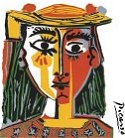
09.01.21 (Elul 24, 5781) During the Season of Teshuvah, some well-meaning people get so introspective that they fall into despair and begin to doubt their own faith, wondering if they really believe after all. The problem of asking yourself whether you "really" (really) believe, however, is that it is inherently "disassociative" -- it splits you into two as you attempt to transcend yourself as if it were no longer you who were the one looking, doubting, hoping, judging, and yes, believing... Some matters can never be known apart from experiencing them. Faith is more of a verb than a noun. It is one thing to think about the psychology of faith but another to actually live it in the rough-and-tumble of everydayness. Self-examination can be helpful, but there comes a time when you have to push aside all the "second order questions" and simply make a decision... This is part of what is meant by denying yourself, when you decide to come back to yourself and live what your heart really desires. It is the way of seeking the "one thing" that is most essential.
C.S. Lewis once noted that if you try to look at something that is there to be used, like a tool, you are apt to lose sight of the thing's purpose altogether. Faith is an example. If you try to look at faith (i.e., as a mental state) and ask yourself 'Do I believe?' you confuse the instrumentality of faith with faith itself. But faith is a means of doing that is revealed in our decisions and actions more than by taking an inventory of the present state of our consciousness. Faith is done in its doing - by turning to God and believing in his Presence. It is activated in the will to believe and it is effected in actions that express that decision. Such faith believes in God's healing mercy as an axiom of interpretation. As an axiom, it is a starting point, or a settled disposition or conviction that provides the contours of the way you make sense of the various ups and downs of your life in this world.
King David wrote, "You have said to my heart, 'Seek my face,' and my heart has said to you, 'Your face, O LORD, will I seek'" (Psalm 27:8). This is the "antiphon" of the great Shema: God calls us to hear His Voice, so we are right to ask Him to be divinely enabled to hear what the Spirit is saying. May the Spirit of the LORD rest upon you and give you healing peace. Amen.
Hebrew Lesson:
 |
Set Apart by Grace...

09.01.21 (Elul 24, 5781) "Faith without works is dead." Our learning has value only when it leads to acts of righteousness. "As the body apart from the spirit is dead, so also faith apart from works is dead" (James 1:26). Faith is meant to penetrate deeply into our souls, and the soul then moves us to action: to worship, to pray, and to do ma'asim tovim (good works) that issue from God's love. As it is written: "For we are God's workmanship (i.e., ποίημα, the result of God's creative power) created in Yeshua the Messiah for a life of good works that God ordained that we should walk in them (Eph. 2:10). Note that we "walk" in these good works by the direction and enabling of God, since the Lord alone provides us the will and the means to do his good pleasure (Phil 2:13). We ourselves are the result of God's work of salvation within our hearts, and all that follows is therefore due to His gracious intervention in our lives, and not to any merit from ourselves (Rom. 11:36). Doing good works is not the cause of attaining new life, but rather the result of the new life working in our hearts. We "work out" the miracle that God has worked into us. Salvation belongs to the Lord.
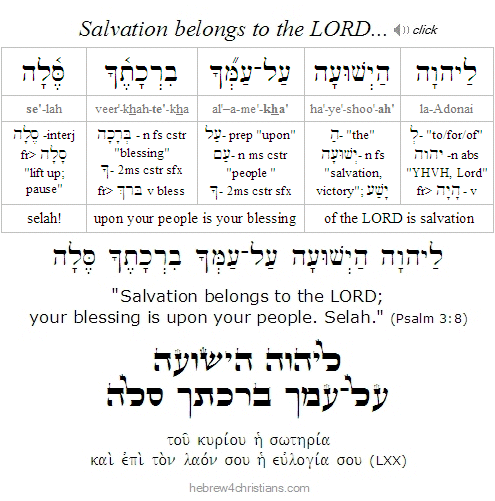 |
Yeshua said: "I am the vine; you are the branches. Whoever lives in me and I in him, he it is that bears much fruit, for apart from me you can do nothing" (John 15:5). We cannot create the new birth by means of moral reformation, since the divine life is a miracle from above and not the result of human agency or aspiration (John 1:13; John 3:6). If we "live in" Yeshua we will bear fruit - our spiritual connection or "union" with him is sufficient for every good work, but only fruit that derives from the life of Messiah will abide (1 John 2:17). Good works are a necessary consequence of regeneration in Messiah, but by themselves they are insufficient and something more is needed (Matt. 7:21-23). Therefore the Scriptures point to the salvation of God and his grace as the efficient cause for the miracle of newness of life: "Not by works of righteousness which we have done, but according to his mercy he saved us..." (Titus 3:5); "for by grace are you saved through faith, and that not of yourselves (τοῦτο οὐκ ἐξ ὑμῶν), it is the gift of God" (Eph. 2:8); "so if it is by grace, it is no longer on the basis of works; otherwise grace would no longer be grace" (Rom. 11:6).
Grace and human effort are mutually exclusive when it comes to life from above: "It is the Spirit that gives life (τὸ πνεῦμά ἐστιν τὸ ζῳοποιοῦν); the flesh (i.e., human nature) is no help at all" (John 6:63). There is a new "center" of identity within the heart: "I is no longer I who live..." (Gal. 2:19-20). We do not appeal to God for mercy based on our best efforts, but like father Abraham we believe that God brings life to the dead. In short we believe that "salvation is of the LORD" (יְשׁוּעָתָה לַיהוָה), that is, that God justifies the ungodly and performs the inner work of salvation on our behalf and for our healing (see Rom. 4:1-5:2). As C.S. Lewis once said in this connection: "The Christian is in a different position from other people who are trying to be good. They hope, by being good, to please God if there is one; or -- if they think there is not -- at least they hope to deserve approval from good men. But the Christian thinks any good he does comes from the Christ-life inside him. He does not think God will love us because we are good, but that God will make us good because He loves us; just as the roof of a greenhouse does not attract the sun because it is bright, but becomes bright because the sun shines on it" (Mere Christianity). However we must not confuse cause and effect. The work of God is to believe in Yeshua (John 6:29) and we then learn to "work out" what God has "worked in" to our hearts by faith, as it says, "work out your own salvation with fear and trembling, for it is God who works in you, both to will and to work for his good pleasure" (Phil. 2:12-13). God who has performed a good work in you will "confirm you to the end blameless in the Day of our Messiah Yeshua" (1 Cor. 1:8; Jude 1:24-25).
Hebrew Lesson:
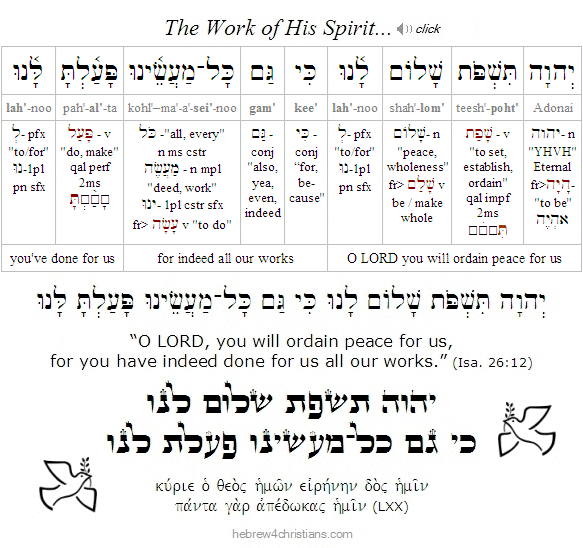 |
<< Return
|

















